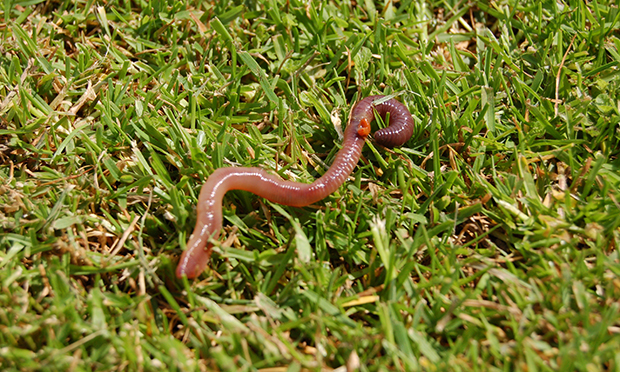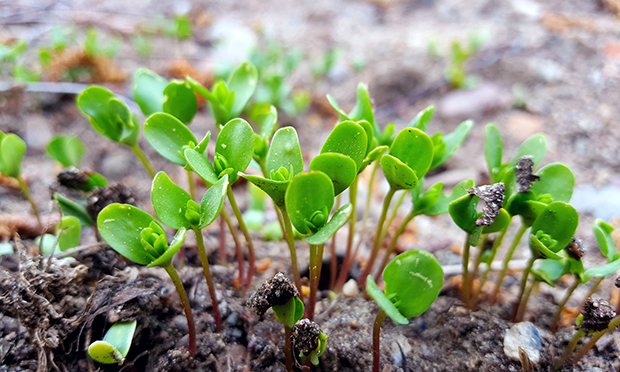The Citizen Gardener: Worms are a sign of a healthy environment

I somehow missed Earthworm Day last month but made sure I went virtually to the Earthworm Society of Britain’s AGM. I’ve been a member for a few years but was surprised to discover that it’s not an ancient organisation – like the Cats’ Protection League (1927) or the RSPB (1889). You’d think it’d been set up by Darwin himself (very pro worms) but, no, it was only started in 2009. To this day knowledge of worms is still pretty slim, despite Darwin’s publication The Formation of Vegetable Mould through the Action of Worms, with Observations on their Habits (a must-read).
The Earthworm Society aims to find out more about these vital creatures and to promote and educate the non-scientific community in worm life: the benefits, biology and ecology. They are training ordinary people to identify and record worms through the National Earthworm Recording Scheme, so that we have a record of their distribution and habits, which currently doesn’t exist. At a previous AGM, for example, they reported that during a field trip to a farmland they recorded no worms at all, but because they don’t have any previous records they can’t draw any conclusions about the health of the soil or worms.
Neither do they know much about worm genetics, and so are, as part of the Darwin Tree of Life programme, currently sequencing genomes of our worms. In addition to this, Darwin himself carried out a 29-year experiment measuring the rate a stone was buried by the burrowing activities of earthworms, which is now being revived and continued by Dr Kevin Batt, Reader at the University of Central Lancashire and Head of the Earthworm research group. I find this heartening.
‘Worms control diseases in the soil by removing debris’
Earthworms exist in almost every terrestrial ecosystem. The biggest (found in Australia) can reach up to three metres long. Others are only a centimetre long. There are not many varieties of earthworm in the UK, only 27, due to our split with Europe – not the most recent one, but the ice age.
So why are worms so good? They break down matter in our compost bins and turn that decomposed matter into a form that can be taken up by plants. Soil-dwelling worms bring nutrients into soil in a similar way and are fundamental to soil formation. They provide food to birds, mammals, reptiles, amphibians and even insects. When worms die their protein-rich bodies decay and return nitrogen to the soil. They also help with carbon storage by mixing dead plant material into soil. They are even vital for flood mitigation as they make long burrows both vertically and horizontally which create air pockets and drainage channels that take in water.

When the poplar tree overhanging my allotment loses its leaves in the autumn I leave most of them on the soil surface because I know by spring all the leaves will have gone, pulled into the soil by the worms.
Not only do they take matter into the soil, but they remove things: they control diseases in the soil by removing debris on which some disease spores overwinter, and they can even remove contaminants from soil. They process and extract debris (like my leaves) and plant matter, turning it into worm casts which contain more microorganisms, more inorganic minerals and more organic matter than the soil from which they were derived.
Not all worms do the same thing or live in the same environments but wherever they are, they are a sign of a healthy environment.
Alternatively, where there are no worms, the soil is likely to be lifeless and lacking any nutrition. A word of warning, pesticides such as slug pellets are damaging to worms.
‘Composting is hugely vital’
Soil and worm health are circular. Improving soil health will increase the number of worms which will increase soil fertility, carbon storage, water retention and all the other benefits. There is a temptation to import worms to improve the soil but they are unlikely to survive if the soil isn’t good in the first place. A simple way to improve the soil is to incorporate manure or compost. Then the worms will come.
As knowledge of worms increases there is an increase in initiatives that capitalise on their ‘skills’. Worm farming on a huge scale is big in the US, Cuba and India for example.
My neighbour gets amazing compost from her dog’s waste (yes, really!) and there are a growing number of worm farmers here including Worms & Peace producing worm compost bins from the size of a paint tin that you can keep indoors to wheelie bins converted to worm farms. Worms & Peace also advocates community composting, which I’d love to see in Hackney.
Composting is hugely vital, as Worms & Peace explains, “managing food waste in our locality not only keeps rotting waste out of landfill, it helps reduce reliance on fossil fuel dependent vehicles, and ultimately provides a local source of fertiliser and compost for community use.”
So, the answer is compost, for which worms are vital. It’s estimated that 1kg of compost is equivalent to 0.1kg of carbon saved. Each gardener is thought to compost about 150-190kg annually. As there are apparently 30 million gardeners in the UK, that’s a lot of compost we could be making and a lot of waste averted – all thanks to worms.
Kate Poland recently appeared on the Radio Walks podcast. You can listen at spoti.fi/3BEqpZU.
Kate is an award-winning community gardener. She was chosen to be the UK’s first ever postcode gardener in E5 as part of Friends of the Earth’s 10xGreener project. For more information, head to cordwainersgrow.org.uk and friendsoftheearth.uk.
